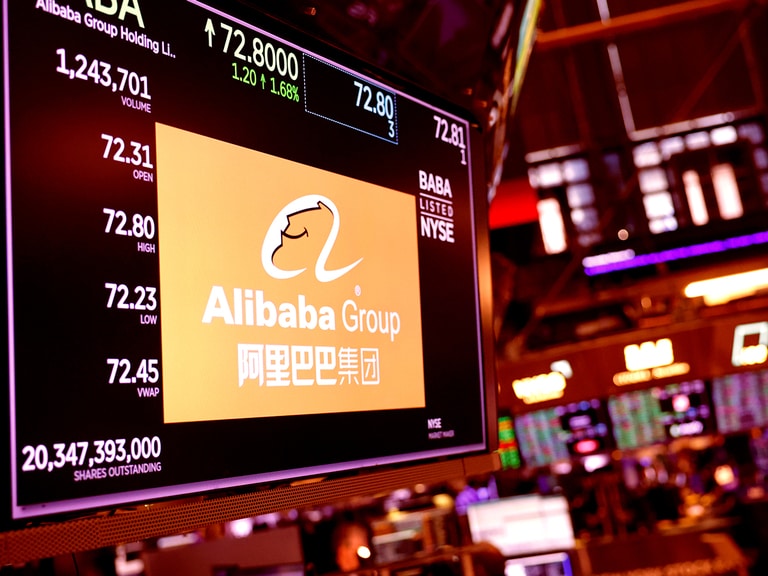Economies are increasingly prioritising investment in transforming their digital infrastructure, especially in Latin America. National strategies and shared standards will be required to ensure the responsible use and deployment of artificial intelligence (AI).
- Intel is partnering with a Chilean multinational IT solutions provider to drive digital transformation in Latin America.
- Brazil, Colombia and Uruguay have published national AI strategies to enhance the continent’s digital infrastructure.
- How to invest in the digital transformation: the Pacer Data and Digital Revolution ETF is up 44% in the past year.
‘Digital transformation’ started out as a buzzword in business circles, used to persuade boards to upgrade their legacy technology systems and avoid falling behind the competition. But, since the pandemic, it has come to be seen as vital to empowering people to live sustainably and prosperously in the digital future.
According to researchers at the International Monetary Fund (IMF), it’s not yet possible to determine the long-term impact of digitisation, but pandemic trends tell us that transforming businesses digitally has helped to mitigate economic disruptions, boost employee productivity and, for the most part, protect jobs.
As economies prepare for the future, policymakers are taking the necessary steps to close the digitisation gap and ensure no one is left behind in the digital transformation.
“This includes promoting policies that maintain healthy competition in digital markets and adapting labour laws and regulations to facilitate remote work. Doing so can build a more resilient and adaptable economy better prepared to navigate future crises,” noted the IMF researchers in a blog post published back in March.
Cisco and Intel Supporting Digital Infrastructures
Chipmaker Cisco [CSCO] has launched one of its Edge centres in Nigeria — these are essentially incubator hubs that provide businesses with development and training opportunities, as well as access to Cisco’s expertise.
The Edge centre in Lagos will help to “train more Nigerians on critical digital skills that will help address the dearth of digital skills in the country,” Guy Diedrich, Cisco Global Innovation Officer, told Nigerian national newspaper This Day.
According to Cisco’s Digital Readiness Index, Nigeria ranks 107th out of 146 countries for both start-up environment and technology adoption, and 124th for technology infrastructure.
At the end of August, fellow chipmaker Intel [INTC] and Chilean multinational-focused information technology (IT) solutions provider Sonda announced that they are joining forces to work on projects designed to advance Latin America’s digital transformation.
The two are hoping to advance the region’s start-up scene by opening doors in terms of networking, financing and accessing markets. A big challenge facing emerging countries in the region is that many lack access to the capital, expertise and technology ecosystem needed to scale and flourish.
Intel Sees Opportunities in Brazil
Latin America has become a region of interest for Intel over the past couple of years in light of the need to nearshore semiconductor supply chains. Guadalajara, Mexico, for example, is home to one of Intel’s validation centres, as well as the company’s only research lab in the region.
General Director of Intel for Latin America Gisselle Ruiz Lanza told BNamericas back in April that the company intends to increase investment as digital transformation projects and digital infrastructure continue to drive demand for data centres.
As its digital presence grows, the region will play a more important role in the future of the company itself. Lanza explained that there are already digital sales and marketing teams in Argentina who have a history of serving customers in Canada. There will also be opportunities in Brazil “due to the size of the market [and] the talent”.
“We continue to look at other opportunities. We believe that Brazil can add value in this context. Brazilian experts are part of our global graphics development teams… in addition, [Brazil] is one of the largest software development markets, mainly open source.”
National AI Strategies Will Be Key to Driving Future Transformation
Brazil recognised the importance of digital transformation back in 2018. In a national strategy published at the time, the country emphasised that AI, algorithms, machine learning, augmented reality, cloud computing and big data are all technologies with “high potential to transform social relations”.
AI specifically could boost Latin America’s total GDP by more than 5% by 2030, according to a 2022 report from the Economist Impact. The actual figure could end up being much higher if governments draw up policies that support innovation and talent to expand the region’s digital infrastructure.
Since 2019, Colombia and Uruguay have both published their own national digital transformation strategies to promote the development and responsible use of AI. However, the emergence and proliferation of generative AI could force countries to rethink their strategies.
Calls for International AI Standards
Ministers from several Latin American countries assembled at last month’s AI for Sustainable Development in Latin America event, held in Santiago, Chile, to mark the launch of the first Latin American AI Index.
The stakeholders discussed how AI can be used to transform development models to make economies more inclusive, productive and sustainable. One of the biggest takeaways was that there need to be international standards that can help to “ensure that the values underpinning that technological development are shared by countries and nations with similar thinking”.
How to Invest in Digital Transformation
ETFs, or exchange-traded funds, offer an economical and diversified way to invest in a variety of stocks within a particular theme.
Funds in Focus: the Pacer Data and Digital Revolution ETF
The Pacer Data and Digital Revolution ETF [TRFK] has both Cisco and Intel in its top 10 holdings as of 5 September. The portfolio is weighted 92.5% in favour of the IT sector, while industrials has a 7.5% weighting. The fund is up 43.8% in the past year and up 28.8% in the past six months.
The Digital Infrastructure and Connectivity UCITS ETF [DIGI.L] has Intel in its top 10 holdings as of 4 September. The fund doesn’t break down its portfolio by sector, but it offers exposure to companies in six key areas: data centres, data networks, digital connectivity, digital transmission, digital processing, and digital solutions and IP. The fund is up 12.9% in the past year up 5.2% in the past six months.
The Amundi MSCI Digital Economy and Metaverse ESG Screened UCITS ETF [EBUY.MI] has Intel as a top-10 holding as of 1 September. IT makes up 45.9% of the portfolio, while consumer discretionary has a 20.7% weighting. Communication services and financials have allocations of 15.4% and 12.5% respectively. Industrials, healthcare and consumer staples make up the rest. The fund is up 10.8% in the past year and up 10.4% in the past six months.
Disclaimer Past performance is not a reliable indicator of future results.
CMC Markets is an execution-only service provider. The material (whether or not it states any opinions) is for general information purposes only, and does not take into account your personal circumstances or objectives. Nothing in this material is (or should be considered to be) financial, investment or other advice on which reliance should be placed. No opinion given in the material constitutes a recommendation by CMC Markets or the author that any particular investment, security, transaction or investment strategy is suitable for any specific person.
The material has not been prepared in accordance with legal requirements designed to promote the independence of investment research. Although we are not specifically prevented from dealing before providing this material, we do not seek to take advantage of the material prior to its dissemination.
CMC Markets does not endorse or offer opinion on the trading strategies used by the author. Their trading strategies do not guarantee any return and CMC Markets shall not be held responsible for any loss that you may incur, either directly or indirectly, arising from any investment based on any information contained herein.
*Tax treatment depends on individual circumstances and can change or may differ in a jurisdiction other than the UK.
Continue reading for FREE
- Includes free newsletter updates, unsubscribe anytime. Privacy policy






